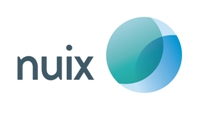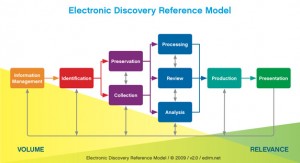- You are here:
- Home »
- TECHNOLOGY »
- An e-discovery conundrum: Nuix or Relativity? Which to use, and when? [with video interviews]
An e-discovery conundrum: Nuix or Relativity? Which to use, and when? [with video interviews]
20 January 2012 – One of the side-benefits to The Posse List is we receive almost weekly feedback from members, law firms and corporations on the good, the bad and the ugly on almost every document review software and information management software out there in Technology Land. In any given week, on average, there are contract attorneys and staff attorneys reporting back on 15-20 technologies. In addition, our beta teams (when permitted under their NDAs) report on various software. Plus our own learning on our projects at our sister company Project Counsel.
And two software vendors gaining more and more market share are Nuix and kCura (Relativity). And not just among law firms, accounting firms and corporations. As we have reported, Nuix has been in beta at DG COMP in Brussels, and both at the S.E.C. in Washington.
But we have discussed a basket of vendors with corporate counsel and law firm counsel. This past year our focus has been at the top table corporate counsel and law firm events such as the IQPC Corporate Counsel Exchange, the Association of Corporate Counsel annual meeting, and the International Bar Association technology events — all of which seem to be attracting more and more information management vendors. Recurring questions to us? What technologies do you see out there, what are you using, what’s been brought in-house.
So we’ll start with “What are the main differences between Nuix and Relativity, and how are you using them?” The following is based on our experience via Project Counsel, plus feedback from our corporate and accounting firm partners.
NOTE: we have no relationships with either Nuix or Relativity and our guess is they may dispute a few of these points ![]() but hey … just call it a report from the e-discovery war zone.
but hey … just call it a report from the e-discovery war zone.
The two technologies can be best explained by looking at the Electronic Discovery Reference Model (“EDRM”):
Nuix is strong on the left side of the EDRM. Nuix addresses parts of the collection and excels in processing (and indexing) large volumes of data at high speeds. With regards to review, Nuix is excellent for “early case assessment” (ECA) and ad-hoc searching and “exploring” the data. There is some built-in “linear review” capability within Nuix (which we used several times this year) but this is pretty basic. Production and especially redaction can be a wee bit difficult in Nuix but not impossible.
Relativity on the other hand is focussed more on the right side of the EDRM (review, redaction and production). It has no processing capabilities, so you cannot ingest raw data (office files, e-mail boxes, etc) as-is into Relativity. You will have to do an intermediate step for this. A number of clients we work with use Nuix for ingestion, processing, indexing and the creation of so-called “Load Files” via the Concordance legal export function within Nuix. These “Concordance Load Files” are then used to ingest the data into Relativity.
The review advantages of Relativity are that it is extremely scalable. Last year we were were involved with a project that started with 5 reviewers and ramped up in one day so there were 75 concurrent reviewers. Not a hitch.
Relativity has review and production features that Nuix is lacking. It for example can track who has reviewed which document for how long, etc. Also, what you can do and where you can click in Relativity can be entirely defined by the administrator. In Nuix, every reviewer has access to everything.
We propose the following:
Nuix (for processing AND review)
– If you expect a simple and straightforward project
– If you do not exactly know what you are looking for (ie. there are no keywords yet available, you need to explore the data, etc.)
– If there are no redaction needs and if you expect an “easy” production (ie, few cycles of production, no or simple bates stamping, etc.)
– If the number of reviewers are limited … <15
– If you have a very good e-discovery project manager (a lawyer with good IT skills, or IT expert with legal knowledge; we are told Project Counsel has the best)
– If the reviewers are more experienced and IT savvy
– If the budget is rather limited
Nuix (for processing) + Relativity (for review)
– If you expect a project growing in complexity and with several phases
– If you expect lots of additional data to be added during the project
– If you expect more than 15 reviewers to be needed
– If you expect important redaction and production needs
– If you will have inexperienced and IT-illiterate staff in the review
– If you have a larger budget
As is the case for any project, do your homework. Before you start “shopping” and comparing pricing and working a budget you need to determine if your project is being run behind the firewall of the ultimate client (are you the law firm or the end client?). And the reality is that most clients cannot really estimate the volume of data you will end up with (compressed/uncompressed, new custodians, new data sources, extra data, etc.) leading mostly to negative surprises. So you need to do that homework. Because a vendor (any vendor) will need to know:
– Estimated duration of the project
– Number of reviewers expected
– First estimate of data volumes
– Type of data (e-mails, server data, computer images, etc.)
– The need for advisory and project management from the e-discovery vendor side; will the vendor be actively involved in the project? At Project Counsel, we always work closely with the vendor and the law firm client or corporate client, advising and assisting them and always looking for opportunities to improve productivity and efficiency where possible. [End of promotional plug]
We’ll finish with two video interviews we did last year at LegalTech with Nuix and Relativity.
The first is a chat with Morgan Sheehy, CEO of Nuix, about how the company started, e-discovery, early case assessment, and more:
We also spoke with Andrew Sieja, founder and CEO of Relativity, about the company’s rapid growth:



